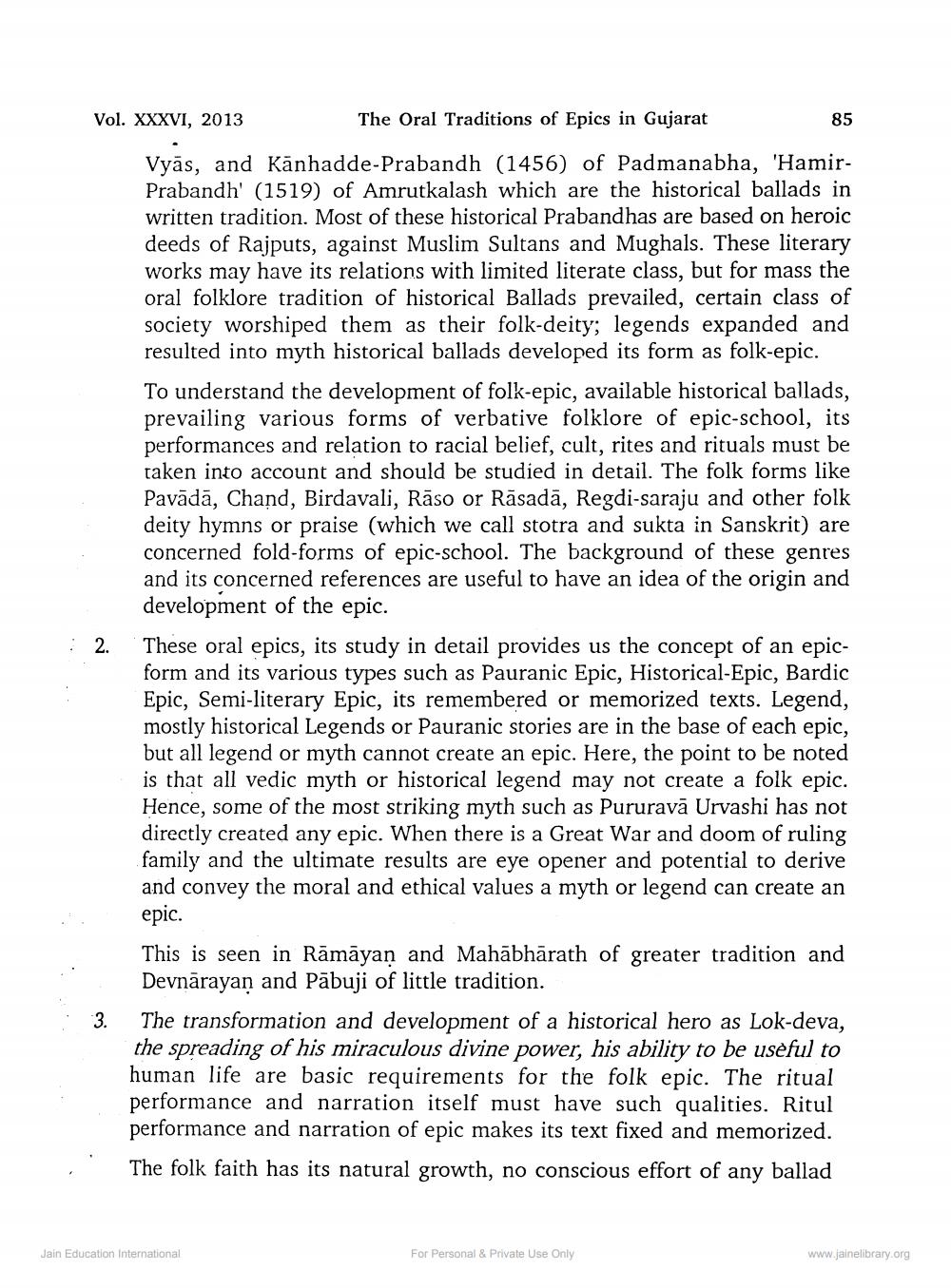________________
Vol. XXXVI, 2013
The Oral Traditions of Epics in Gujarat
85
Vyās, and Kānhadde-Prabandh (1456) of Padmanabha, 'HamirPrabandh' (1519) of Amrutkalash which are the historical ballads in written tradition. Most of these historical Prabandhas are based on heroic deeds of Rajputs, against Muslim Sultans and Mughals. These literary works may have its relations with limited literate class, but for mass the oral folklore tradition of historical Ballads prevailed, certain class of society worshiped them as their folk-deity; legends expanded and resulted into myth historical ballads developed its form as folk-epic. To understand the development of folk-epic, available historical ballads, prevailing various forms of verbative folklore of epic-school, its performances and relation to racial belief, cult, rites and rituals must be taken into account and should be studied in detail. The folk forms like Pavādā, Chand, Birdavali, Rāso or Rāsadā, Regdi-saraju and other folk deity hymns or praise (which we call stotra and sukta in Sanskrit) are concerned fold-forms of epic-school. The background of these genres and its concerned references are useful to have an idea of the origin and development of the epic. These oral epics, its study in detail provides us the concept of an epicform and its various types such as Pauranic Epic, Historical-Epic, Bardic Epic, Semi-literary Epic, its remembered or memorized texts. Legend, mostly historical Legends or Pauranic stories are in the base of each epic, but all legend or myth cannot create an epic. Here, the point to be noted is that all vedic myth or historical legend may not create a folk epic. Hence, some of the most striking myth such as Pururavā Urvashi has not directly created any epic. When there is a Great War and doom of ruling family and the ultimate results are eye opener and potential to derive and convey the moral and ethical values a myth or legend can create an
2.
epic.
3.
This is seen in Rāmāyan and Mahābhārath of greater tradition and Devnārayan and Pābuji of little tradition. The transformation and development of a historical hero as Lok-deva, the spreading of his miraculous divine power, his ability to be useful to human life are basic requirements for the folk epic. The ritual performance and narration itself must have such qualities. Ritul performance and narration of epic makes its text fixed and memorized. The folk faith has its natural growth, no conscious effort of any ballad
Jain Education International
For Personal & Private Use Only
www.jainelibrary.org




